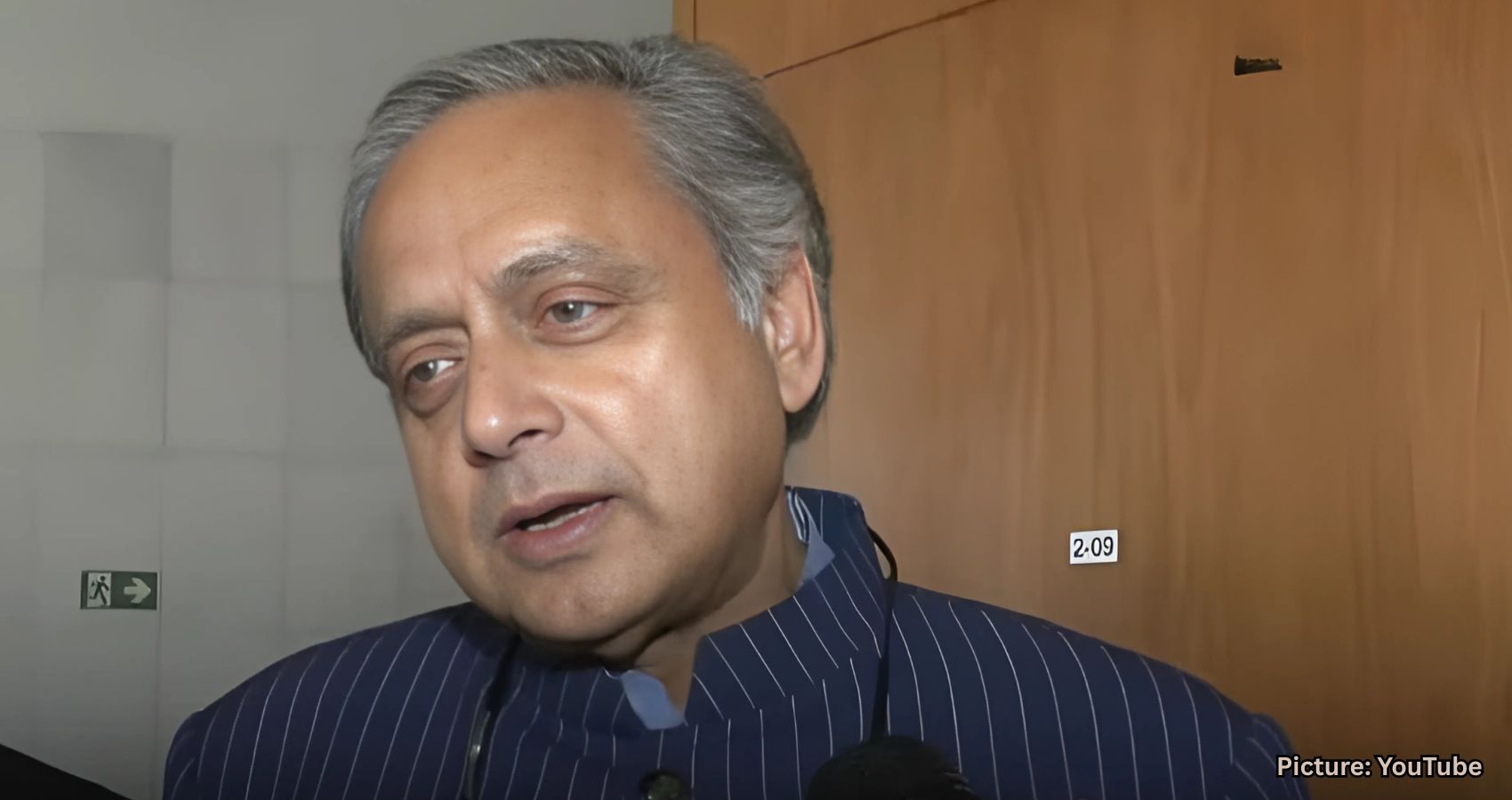India has garnered widespread bipartisan support from U.S. lawmakers in its ongoing battle against terrorism, according to Congress MP Shashi Tharoor. Tharoor is leading a multi-party Indian parliamentary delegation currently visiting Washington, D.C., to discuss counterterrorism cooperation and deepen diplomatic ties.
At a press briefing, Tharoor emphasized the warmth and unanimity of the American response, stating, “We didn’t encounter a single skeptical or negative voice. On the contrary, the responses were uniformly positive. There was total support and complete understanding of India’s right to defend itself against terrorism.” This visit marks a significant step in enhancing India-U.S. counterterrorism collaboration and fortifying the broader strategic partnership between the two democracies.
The Indian delegation held a series of meetings with key stakeholders on Capitol Hill, including members of the influential India Caucus, lawmakers from the House Foreign Affairs Committee, the South Asia and East Asia subcommittees, and six U.S. Senators—five of whom are members of the Senate Foreign Relations Committee, and one representing the Senate Intelligence Committee. These discussions were aimed at rallying international support against terrorism and elaborating on the rationale behind India’s recent counterterrorism operation, known as Operation Sindoor.
Operation Sindoor, carried out in response to the April 22 terrorist attack in Pahalgam that left 26 people dead, has been central to the delegation’s engagements in the United States. The Resistance Front, which is believed to be affiliated with the Pakistan-based terror group Lashkar-e-Taiba, claimed responsibility for the attack.
Democratic Congressman Ro Khanna, who co-chairs the India Caucus, took to social media platform X to express his solidarity with India’s counterterrorism goals. “We discussed the importance of strengthening U.S.-India counterterrorism cooperation and dismantling the terrorist groups responsible for the April 22 attack in Pahalgam,” Khanna said, reaffirming the depth of bipartisan interest in expanding security collaboration between the two nations.
Senator Dave McCormick, a Republican who chairs the Senate Foreign Relations Subcommittee on the Near East, South Asia, Central Asia, and Counterterrorism, echoed these sentiments. He highlighted the alignment of values between India and the United States. “We discussed combating terrorism, pushing back against authoritarian regimes, and deepening our economic ties to build a free and democratic future,” McCormick posted, noting the significance of bolstering shared democratic ideals in addition to security interests.
Representative Gregory Meeks, the ranking Democrat on the House Foreign Affairs Committee, also met with Tharoor and underscored the commitment of the U.S. Congress to its partnership with India. “My colleagues and I expressed condolences for the terrorist attack in Pahalgam and reaffirmed Congress’s commitment to the U.S.-India partnership,” Meeks posted following the meeting. He acknowledged Tharoor’s role as Chair of India’s Parliamentary Standing Committee on External Affairs, highlighting the importance of legislative diplomacy in bilateral relations.
Tharoor reflected positively on the Capitol Hill engagements, stating, “We left Capitol Hill very pleased with the quality of the conversations and the level of engagement.” The U.S. stop is part of a broader diplomatic tour, during which the delegation had previously visited Guyana, Panama, Colombia, and Brazil. In each of these nations, the delegation received strong signals of solidarity against terrorism and keen interest in enhancing trade, investment, and other forms of economic collaboration.
According to Tharoor, this pattern of support underscores a global understanding of India’s security concerns and an eagerness to deepen bilateral and multilateral ties beyond security cooperation. “There was a fairly bipartisan consensus on Capitol Hill that as two of the world’s largest and most vibrant democracies, India and the United States have much to offer together,” Tharoor noted. He emphasized that while terrorism is an urgent concern, the long-term vision of the India-U.S. relationship must also center on economic partnerships and the shared defense of democratic institutions and values.
Delegation member Shashank Mani Tripathi and other MPs also conducted side meetings that focused on economic collaboration. These discussions aimed to explore opportunities for trade, technology exchange, and investment, reflecting India’s broader strategic objectives during the tour.
During the delegation’s visit to Washington, Tharoor also addressed journalists at the prestigious National Press Club. He used this platform to further promote India’s counterterrorism stance and to foster broader understanding among the American public and media. Additionally, he participated in a well-attended meeting with the Indian diaspora, where he encouraged Indian-Americans to remain actively engaged in civic life and to build bridges with their elected representatives.
“They listen to you. They respect you. You’re high achievers who can make a real impact. We’re proud of you,” Tharoor told diaspora members, urging them to play a proactive role in shaping India-U.S. relations from within American civil society.
The Indian parliamentary team represents a broad political spectrum, underscoring national unity on the issue of terrorism. Alongside Tharoor, the delegation includes Shambhavi Choudhary of the Lok Janshakti Party – Ram Vilas; Sarfaraz Ahmad of the Jharkhand Mukti Morcha; Milind Murli Deora of the Shiv Sena; Bhubaneswar Kalita and Tejasvi Surya of the Bharatiya Janata Party (BJP); and G.M. Harish Balayogi of the Telugu Desam Party, which is an ally within the National Democratic Alliance (NDA).
The presence of members from a wide range of political affiliations within the delegation was noted as a strength in meetings with U.S. lawmakers. It highlighted the unified political stance in India on the issue of terrorism and demonstrated the country’s cohesive approach to foreign policy and national security. This bipartisan Indian representation complemented the similarly bipartisan support they received from their American counterparts.
Tharoor and his colleagues hope their visit will serve as a foundation for deepened bilateral cooperation, not just in terms of defense and counterterrorism, but also in trade, education, technology, and climate action. As both India and the United States prepare for evolving geopolitical challenges, such exchanges are seen as vital for sustaining a resilient, long-term strategic partnership.
In conclusion, Tharoor’s delegation returns from Washington with a strong affirmation of U.S. solidarity, as well as a renewed sense of purpose in advancing India’s role on the world stage through democratic dialogue and strategic alignment.

